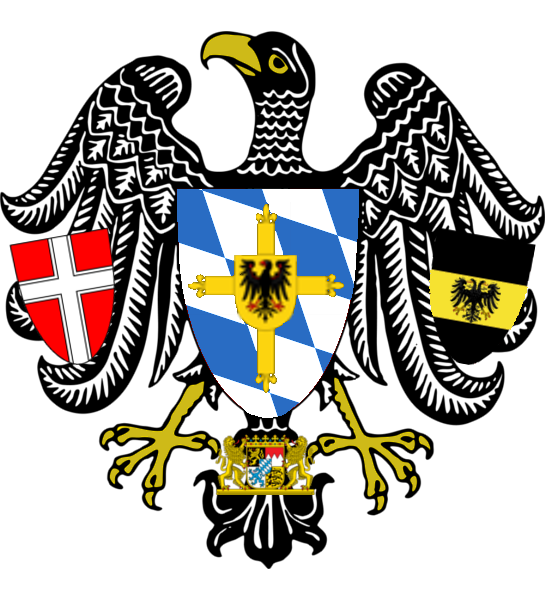1857 – Kraus: The Greatest Enemy
It is often said that the pen is mightier than the sword, and there are few cases in history where this is truer than the fall of Alexander Kremvera. The styling of Napoleon where clear at the time, from the Imperial nature of his title to the opposition referring to him dismissively as the ‘Little General’, yet only in hindsight do the parallels between 1812 and 1857 become clear – both leaders were gaining victories and territory, but the cost of attrition, one to the bitter cold of the Russian winter and the other to the war of words, was too much for either army to bear. By the start of June, Kremvera’s forces had halved in size, but had not stopped going forwards; on the day of Kremvera’s death, Royalist forces were far enough North to be within 50 miles of both Vienna and Budapest and in full control of Bosnia and Herzegovina, Croatia, Carniola and Trieste as well as large portions of San Marco, Austria, Hungary and Transylvania. In fact, to some observers in the capital, it appeared as if the Republic was doomed and talk spread of the need for intervention or governmental exile [1].
1.Kremvera elected to wear his uniform from when he was Regular for his preliminary coronation in Bosnia, of which this is the only surviving picture.
Many historians argue that Kraus’s policy of protecting Vienna at all costs made this territorial transfer inevitable but also ensured that it very unlikely that Kremvera would ever actually be able to gain absolute victory, yet few would disagree that foreign powers stood behind the rebellion over the Republic; with the notable exception of France, the other great powers would doubtless have sided with the self-proclaimed Emperor. From this point of view, Kraus’s decision not to call in his French allies in the face of Bavarian intervention can be regarded as the turning point of the war. Regardless, on the 12th June 1857, Kremvera was found dead with a bullet from his own pistol lodged in his right temple. It was declared a suicide, though there is no positive proof to this day that it was, and the royalist forces put down their weapons within just a few days. [2]
More than anything, 1857 was defined by the rise of a new force within Europe; the Federation’s “greatest enemy”, nationalism, made it’s mark felt in 1857 as never before.[3] In Silesia, the Radical candidate, Günther Knittel, took victory by less than 1% in the race to replace the evicted Chancellor against an overtly pan-German opponent, while in Transylvania, protesters gathered in public places to call for secession and the formation of a larger Romania. In Italy, pan-nationalist Redshirts took arms in the city of Massa in the first revolt of its kind.
2. Giuseppe Garibaldi leads the thousand volunteers of the Redshirts into battle outside the city walls of Massa, 4th June 1857.
In Bavaria, meanwhile, a fiercely nationalistic newspaper secured a copy of a contract between Kremvera and the King whereby the Bavarian crown renounced its claim on Silesia in exchange for 21% of the Federation’s gross income for 5 years. The Bavarian state’s desire to suppress the document was from an understandable fear of crisis, but Prussian and Russian hostility to the Federation meant that eventual ultimatum sent under pressure of popular support got warm receptions in both St Petersburg and Berlin; there were but three options – hand over Silesia, give over a fifth of the Federation’s net income away in the face of mounting debts or go war for the 4th time in a decade.
In France, nationalism was even encouraged by the government. Under fire from a spreading Jacobin resistance to his rule, Napoleon III of France attempted that ever present mantra of the unpopular government – success abroad brings popularity at home. He tried to stir up nationalism in his favour within the country, with a fair deal of success, in the process, declaring war on Prussia for the Rhineland.
[1] Recent evidence suggests that no less than 4 different plans for the evacuation of the government were proposed. The only one to gain real traction within the governmental quarter of Vienna was the Democratic States of the Danube, proposed by Councillor Vertucci and quickly code named “Plan B”. Such a move would have seen the remainder of the cabinet, large parts of the civil service and those members of the Hofburg who had stayed loyal heading North through Prussia and the neutral North German states into France or some other acceptable location from which to organise the resistance movement to the new Imperial government.
[2]The court trials of those involved in the coup continued for well over a year at almost all levels of criminal courts, while the referendums for the liberated territories, plus Crete, were given an official date (5th January 1858)
[3]This term for nationalism can be attributed to Minister Janos Papp in his autobiographic work, The Castle of my Crimes. Many point to the cover of the book’s 1920’s English edition, designed by an unknown artist at the vanguard of the surrealist movement and depicting a soldier standing atop some battlements in front of a French flag as an African Swallow flies past carrying a coconut, as a major source of inspiration for the writers of Monty Python and the Holy Grail.
3. Perhaps inspired indirectly by Papp’s work?
---
Actions required:
Could everyone who has changed characters since the coup, or otherwise thinks the character list is incorrect, PM me with a link to you new character post and the reason your old character left politics [eg imprisoned, retired, died etc] or with any corrections you want made.





